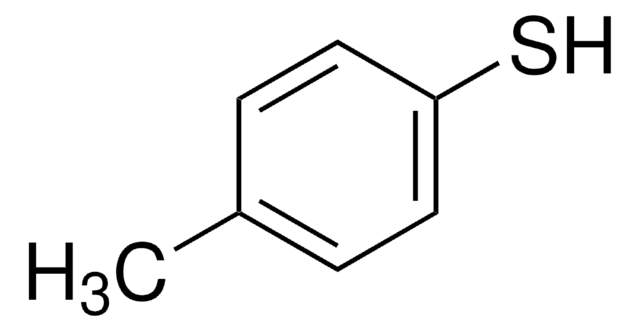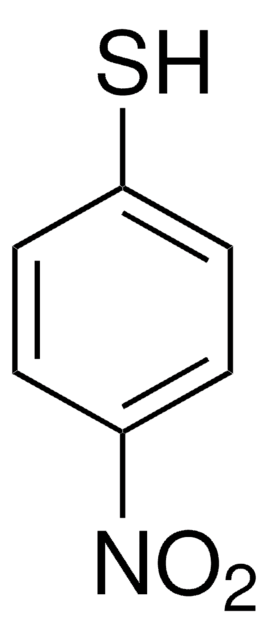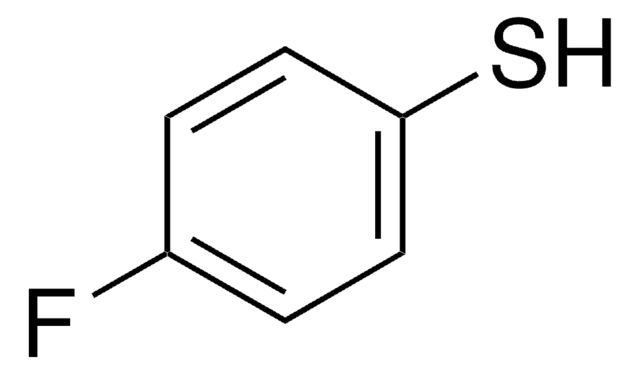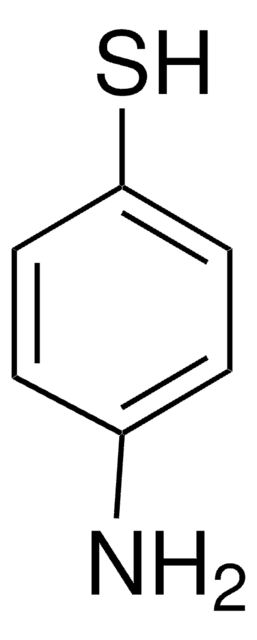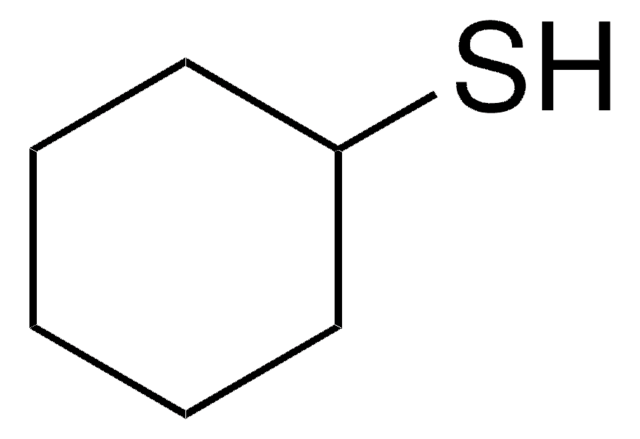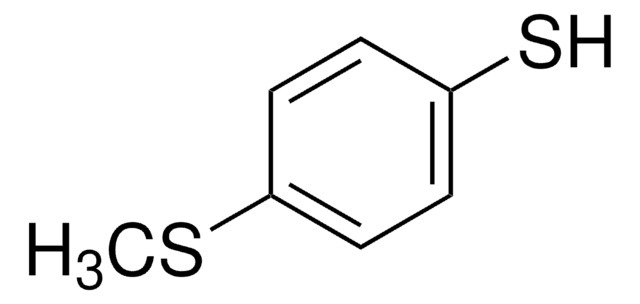240249
Thiophenol
≥99%
Synonym(s):
Benzenethiol, Phenyl mercaptan
About This Item
Recommended Products
vapor density
3.8 (vs air)
Quality Level
vapor pressure
1.4 mmHg ( 20 °C)
Assay
≥99%
form
liquid
refractive index
n20/D 1.588 (lit.)
bp
169 °C (lit.)
mp
−15 °C (lit.)
solubility
alcohol: very soluble(lit.)
benzene: miscible(lit.)
carbon disulfide: miscible(lit.)
diethyl ether: miscible(lit.)
water: insoluble(lit.)
density
1.073 g/mL at 25 °C (lit.)
SMILES string
Sc1ccccc1
InChI
1S/C6H6S/c7-6-4-2-1-3-5-6/h1-5,7H
InChI key
RMVRSNDYEFQCLF-UHFFFAOYSA-N
Looking for similar products? Visit Product Comparison Guide
Application
- To prepare (3H-benzo[c][1,2]diselenol-3-yl)(phenyl)sulfane and β-lactones.
- As a surface capping ingredient in the preparation Fe-doped ZnS nanoparticles exhibiting ferromagnetic properties.
- As an oxygen scavenger in the N-deacetylation of chitin to yield chitosan C.
- As an activator in the coupling reactions of carboxylic acids with isonitriles.
Signal Word
Danger
Hazard Statements
Precautionary Statements
Hazard Classifications
Acute Tox. 1 Inhalation - Acute Tox. 2 Dermal - Acute Tox. 2 Oral - Aquatic Acute 1 - Aquatic Chronic 1 - Eye Dam. 1 - Flam. Liq. 3 - Repr. 2 - Skin Irrit. 2
Storage Class Code
3 - Flammable liquids
WGK
WGK 3
Flash Point(F)
122.0 °F - closed cup
Flash Point(C)
50 °C - closed cup
Personal Protective Equipment
Regulatory Listings
Regulatory Listings are mainly provided for chemical products. Only limited information can be provided here for non-chemical products. No entry means none of the components are listed. It is the user’s obligation to ensure the safe and legal use of the product.
PDSCL
Poisonous substance
FSL
Group 4: Flammable liquids
Type 2 petroleums
Hazardous rank III
Water insoluble liquid
ISHL Indicated Name
Substances Subject to be Indicated Names
ISHL Notified Names
Substances Subject to be Notified Names
JAN Code
240249-VAR:
240249-BULK:
240249-50ML:
240249-10ML:
240249-50G:4548173122694
240249-10G:4548173122687
Choose from one of the most recent versions:
Already Own This Product?
Find documentation for the products that you have recently purchased in the Document Library.
Customers Also Viewed
Articles
Markovnikov and anti-Markovnikov alkene reactivity differences are discussed, highlighting challenges and catalytic advancements.
Our team of scientists has experience in all areas of research including Life Science, Material Science, Chemical Synthesis, Chromatography, Analytical and many others.
Contact Technical Service
